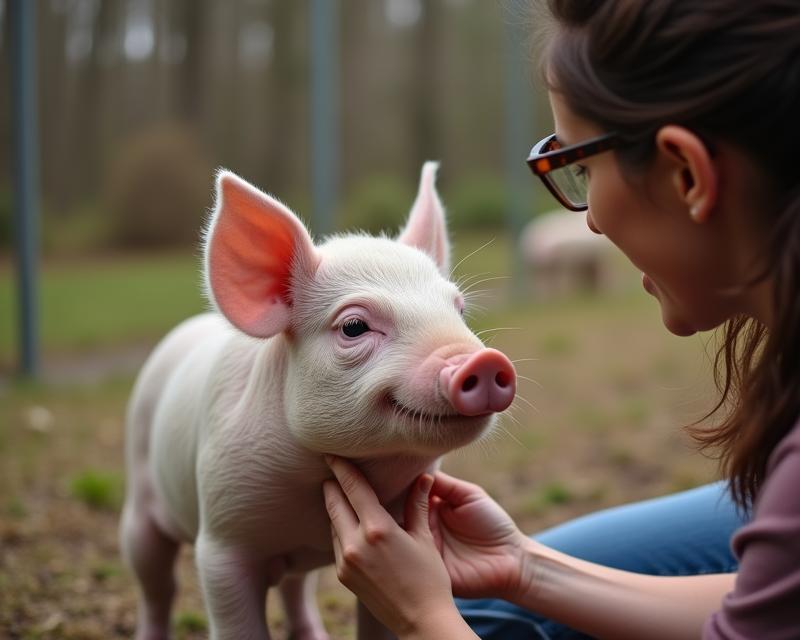Piggy Power: Medication for Small Pets!
Publish in Health el 28/06/2025 19:15
Small Pet Pig Takes Medication for Chronic Conditions in a Dog Run Area
It might seem unusual, but small pet pigs are becoming increasingly popular companions! While often associated with farms, these intelligent and social animals can thrive in a home environment, even sharing space with other pets. However, like any pet, pigs can develop health conditions that require medication. Seeing your pig take medicine might seem daunting, but with a little knowledge and patience, it can be a smooth process.

One common scenario is a small pet pig living in a dog run area. Pigs are surprisingly resilient, but they can be prone to certain health issues, especially as they age. Chronic conditions like arthritis, skin allergies, or even digestive problems can necessitate long-term medication. It's crucial to work closely with your veterinarian to understand the medication's purpose, dosage, and potential side effects. Don't hesitate to ask questions – your vet is your best resource for ensuring your pig's well-being.
Making Medication Time Easier
Getting your pig to take medication can be a challenge! Here are a few tips to make the process less stressful for both of you:
- Disguise the medicine: Many medications can be hidden within a small amount of tasty food, like applesauce, yogurt, or even a small piece of cooked meat.
- Pill pockets: These commercially available treats contain medication and are often a hit with picky eaters.
- Direct administration: If hiding isn't an option, your vet can show you how to directly administer the medication. A pill gun or simply placing the pill at the back of the pig's throat can work.
- Positive reinforcement: Reward your pig with praise and a favorite treat after they take their medicine. This helps create a positive association with the process.
Remember, consistency is key! Administering medication at the same time each day will help establish a routine. If you're struggling with the process, don't hesitate to reach out to your veterinarian or a veterinary behaviorist for guidance. With a little effort, you can ensure your small pet pig receives the care they need to live a happy and healthy life, even if that includes taking medication. Providing proper care and attention will allow your pig to thrive, bringing joy and companionship to your home. And don't forget to monitor your pig for any adverse reactions and report them to your vet immediately.





